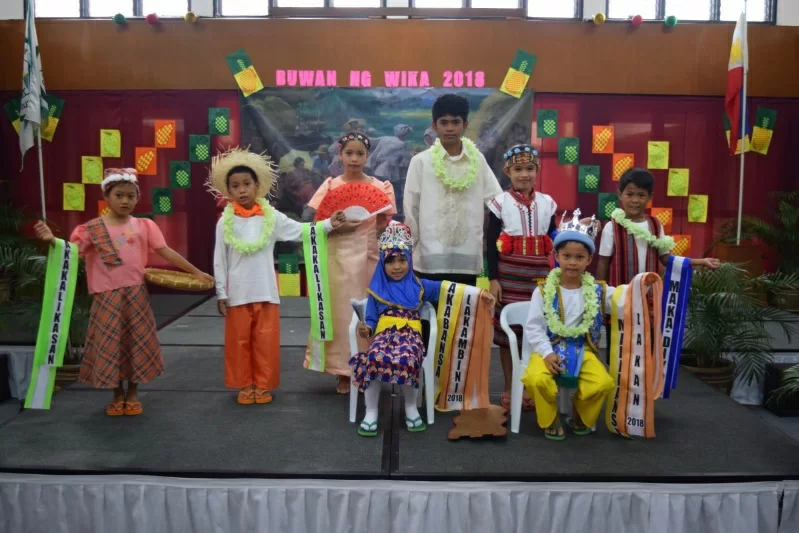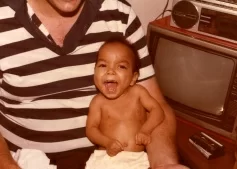 without a thought on my part. But Luke came to my mind yesterday and I looked up some information on him and discovered that his birthday had just passed. I found this old article that I wrote about Luke a few years ago. I thought I'd share it again. I am convinced that there are important and significant lessons we can learn from his life, and that I need to regularly share what I think they are. I hope you enjoy this!
without a thought on my part. But Luke came to my mind yesterday and I looked up some information on him and discovered that his birthday had just passed. I found this old article that I wrote about Luke a few years ago. I thought I'd share it again. I am convinced that there are important and significant lessons we can learn from his life, and that I need to regularly share what I think they are. I hope you enjoy this!The mysteries of God are a part of the Christian life that can often lead to confusion, doubt and even discouragement for believers.
- For some, it's a pride thing. We want to have answers – we want to understand, to be able to grasp the complexities of Biblical truth and God's plan for mankind.
- For some, God's mysteries – the unexplained things of life – are stumbling blocks to faith:
1. Why do bad things happen to good people?
2. Why does He allow pain, suffering and evil to thrive in our world?
Several months ago we were witnesses to the aftermath of the tragedy in Pennsylvania involving the Amish community, where, good, decent, hard working, non violent people were subjected to unspeakable cruelty towards their children. How can this happen?
3. One of our CSC children, who grew up in the worst poverty imaginable in Cebu City, was adopted into a family in the United States several years ago. Well meaning people would tell her how lucky she was and how God obviously had a wonderful plan for her life. She had a hard time with that and would sometimes ask her parents, "But what about all the kids who are still there, who weren't adopted, and who are still suffering and dying? What is God's wonderful plan for their lives? Why me and not them?
For many of us, we celebrate the goodness of God in our lives, we praise him for his healing, for material comforts, for blessing our efforts – even as we observe people who remain sick or disabled, who suffer in poverty – those who efforts and initiatives end in disappointment and ruin.
There are two extremes in terms of people's reactions to the things about God and life that are not understood.
1. There are those who try in vain to grasp the ungraspable – to be able to reduce the mysteries to understandable formulas or explanations. I remember a young seminarian who came to Cebu and who filled the pulpit of our church on a Sunday evening. He preached for an hour on the "peace of God that passes all understanding." Perhaps he felt that if he preached long enough he could crack that nut and open our understanding!
We all know those who have reduced the book of Revelation to precise charts and timetables, giving us easy to understand categories for all of human history and, most especially, the times to come.
2. A second category are those who shake their heads and say, "We'll only know these answers when we get to heaven." They suspend inquiry, not bothering to seek answers to the perplexing questions of life.
Living and working in a Third World country like the Philippines brings some of these mysteries to the front of our lives. Poverty, and all that goes with it, is "in your face." People often ask me "How do you like living in the Philippines?" That's a tough one to answer. Life anywhere has its highs and lows. Some days are great, others are difficult. I often answer this way:
1. When I'm sitting down to a nice breakfast I am aware that, within a few meters of my house are families that have no breakfast.
2. When I'm driving to the office or the Shelter I often pass people walking along the road who, for lack of a few cents can not even afford public transportation and must walk.
3. When I stop to buy medicine for my family or the CSC kids, there are people standing nearby whose children are dying for lack of that very same medicine.
Why am I blessed and they are not?
I recall a conversation with a missionary a few days after Cebu was hit by a strong typhoon. Many of our CSC workers lost their roofs or their entire homes. The houses of the poor were devastated by the high winds and torrential rains. The missionary said that it had been such a miracle how God spared the missionary homes from damage, holding his hands of protection around us during the storm. I remember wondering whether it wasn't more a matter of our having cement houses and strong metal roofs.
Why did our CSC kids have to suffer so much? And how much more, those who live on the street and cannot be admitted to CSC?
These are tough questions. When it comes to trying to understand our own suffering, the Bible gives some answers. For example, Romans 5:3-4 tells us that suffering produces perseverance, perseverance character, and character, hope. And the Bible gives us additional hope that we will someday come to see God's purpose and mysteries:
"But now we see through a glass dimly, but then face to face."
And we hear the testimonies of Christian brothers and sisters who have lived through terrible times and have turned negatives into positives in their lives.
Several months ago I was attending a conference in Bismark, North Dakota. One of the featured speakers was Steve Saint, Steve's father, Nate Saint, was one of the five missionaries killed in 1956 by Aucan warriors in Equador. Steve told about what that tragic day meant to his family, and what it was like when his dad, his hero, didn't come home that day. We saw video of his current family life, and saw a man who was interacting with Steve's children, and who was being referred to as "Uncle." It turns out that this was the very man who had killed Steve's father, who had come to know Jesus and had experienced the forgiveness of God and of the Saint family and now was a part of their family – an amazing story of how good things had come out of tragedy and suffering.
So the clear message is that God has a plan for our lives, we will discover that plan in the right time. He is writing our life's stories, but some of the chapters are difficult ones.
We can understand this. We can, when aided by the Holy Spirit, see how difficulties and suffering are part of a purification process for us, and that we, like Job, will eventually be better people for it.
But what about people who, because of major disabilities, are unable to understand their situation, unable to discern the hand of God or his plan for their lives. Where is the purification and growth and ultimate value for these people? What could God's purpose possibly be?
Back on 1982 a baby was born in a charity ward in a small hospital in Cebu City. 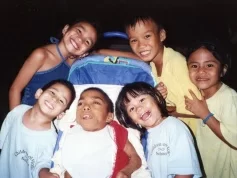 The baby underwent cardiac arrest during birth and was without oxygen for an extended time. Unlike many cases of charity patients, the hospital staff decided to resuscitate the baby, even after he had suffered massive brain damage and cerebral palsy. The baby's mother abandoned him in the hospital, and after a couple months Luke was referred to CSC. When we took him in he appeared to be a bouncing baby boy. We did not know that he would not develop physically beyond about a year and a half, or mentally beyond a few months. Luke would never speak, nor have voluntary movement of his arms or legs.
The baby underwent cardiac arrest during birth and was without oxygen for an extended time. Unlike many cases of charity patients, the hospital staff decided to resuscitate the baby, even after he had suffered massive brain damage and cerebral palsy. The baby's mother abandoned him in the hospital, and after a couple months Luke was referred to CSC. When we took him in he appeared to be a bouncing baby boy. We did not know that he would not develop physically beyond about a year and a half, or mentally beyond a few months. Luke would never speak, nor have voluntary movement of his arms or legs.
Luke became a fixture at CSC. For over 23 years he was an integral part of our lives and a symbol of CSC and what we are all about.
Many times Luke would be hospitalized – often due to upper respiratory infections. He fought for his life many times. There were at least a dozen times when we were sure that he would die. The doctors had told us that he wouldn't make it past five years old. Then they revised it to nine, then 11 – certainly he wouldn't reach his teenage years.
One time, when Luke was critically ill our staff met to pray and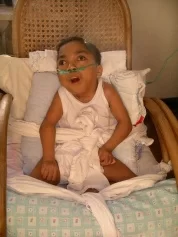 I asked them to reflect on his life. Here is why: I believe that God had a purpose for Luke's life when he created him. I believe that He uses people like Luke to teach us important things. But here is the rub: If we don't spend time reflecting on these lessons, then Luke's life is useless. Its up to us to allow God to make sense of Luke's life.
I asked them to reflect on his life. Here is why: I believe that God had a purpose for Luke's life when he created him. I believe that He uses people like Luke to teach us important things. But here is the rub: If we don't spend time reflecting on these lessons, then Luke's life is useless. Its up to us to allow God to make sense of Luke's life.
And what are the lessons that we found? What has God taught us through his life?
1. First, life is precious. Even though he had nothing to live for, from the world's point of view, Luke clung to live almost ferociously. Some of us who have much more to live for take life casually, we take life for granted. Not Luke. Every day was a struggle. Every breath had to be fought for. Life is a gift from God and we should treat it carefully.
2. God has provided us with opportunities, through Luke's life, to minister to him in significant and life-saving ways. He has provided an avenue for us to live out the biblical mandate to minister unto the "least of these," because, truly, Luke was in that category. Hundreds of people have been given a blessing to participate in the support of CSC that reaches out to children like Luke and many others with other special needs.
3. In so doing, He has given us a chance to show others a Godly value system that doesn't reserve love and attention for those who have something to give back, or who have "potential" or a bright future. For many people who live in a developing country, where resources are limited, this has been a difficult lesson to learn. How could we justify spending so much money for Luke's hospitalization when other, "normal" kids needed care? Luke's life gave us the opportunity to teach about the value of life and about how God looks at all of us.
4. Luke has been a tremendous ambassador for CSC. People around the world remember observing the loving care that he received by our staff and workers. They remember his famous smiles. They may quickly forget the names of the staff or other children, but they remember Luke. "How's Luke doing?" we get asked wherever we go to talk about the ministry of CSC. And our care of Luke helps us explain the true nature and core values of our work in the Philippines.
5. Luke has been a safety valve for those that had an opportunity to know him. My job as Field Director of CSC involves lots of administrative chores, like making budgets, government relations and various kinds of problem solving. There are days when I get stressed out and start to feel the weight of the world on my shoulders. But all I needed to do is to drive a few short miles to where Luke lived, to hold him in my arms, and I get a clear picture of what real struggles are all about. My struggles paled in comparison to what Luke faced every day. Self pity may be easy for some people, but those that knew Luke have no excuse for feeling sorry for themselves. What a great gift that was to all of us.
A little over a week before we left Cebu, Marlys called me on my cell phone and told me that I should get to the hospital quickly, as Luke wasn't doing well. He had been hospitalized for over a week and his breathing was bad. I had gotten messages similar to this one throughout Luke's life, so I went to the office and took care of a few things. But the Lord laid it on my heart to go see Luke and when I entered his room his breathing was extremely labored. He looked different than I had ever seen him, and it became clear that he was dying. I sat down next to him, kissed him and looked into his eyes. For 23 years we had loved this boy. It wasn't easy to say goodbye. I said to him, "Luke. You can go. Go to be with Jesus, Luke. I love you." Within a couple of minutes Luke took his last breath. 23 years of pain, suffering, limitations, hospitalizations, forced breathing, skin rashes and infections were over. We would never see Luke's smile again.
As Luke was dying in that hospital room, I made a promise. I'm not sure if I was making a promise to Luke, to God or to myself. But I decided then and there that I was going to talk about Luke on our coming furlough. I believed then and do now, that the church of Jesus Christ needs to hear about Luke, that the lessons of his life are important ones. Many Americans are complainers - full of self pity. People who have so many material comforts are unsatisfied. American discourse is increasingly a chorus of victim and entitlement claims. Charles Sykes, in his book "A Nation of Victims: The Decay of the American Character" states that, "in a nation where everyone is a victim, no one is a victim." In our preoccupation with our own needs we have a hard time seeing the needs of others – people like Luke.
In his song "God Help the Outcasts," the Hunchback of Notre Dame poses several difficult issues:
I don't know if there's a reason
Why some are blessed, some not
Why the few You seem to favor
They fear us, flee us,
Try not to see us.
The first part we have already examined. The second is our call to arms. "Why the few You seem to favor, they fear us, flee us, try not to see us."
I don't know what factors might make it difficult for us to see the needs of society's outcasts. Perhaps we are too busy. Maybe our personal and church calendars are so full that there just isn't room for Luke, or the man who had fallen to thieves at the side of the road, to break into our day. Maybe we are numbed or fatigued by the needs of others, or simply overwhelmed by the circumstances of our own lives. Maybe we have become cynical. "Why did that guy travel this road at this time carrying that amount of money? He deserves what he got!"
Maybe, just maybe, Luke can help cut through the apathy, the self-centeredness and cynicism of our lives. He was a person with significant needs that he didn't cause. He was totally dependent on others to live. His life had none of the possibilities and opportunities that we take for granted every day. He needed us so very much. Maybe Luke can serve as a symbol of many others that we come into contact with. Maybe Luke can help us rescue our lives.
Love for Jacob
"Love is that condition in which the happiness of another person is essential to your own."
― Robert A. Heinlein
I came upon this quote a few days ago and it's quite fitting to cite it as I share about this little boy. Jaycob came to CSC a few days before his 5th birthday. He didn't seem interactive, something unusual for a new kid his age, but not surprising since we knew beforehand that he has autism. It was a challenge that the staff decided to take, but it was more challenging as the days progressed since he was often irritable and out of control. Furthermore, he was constipated and toilet training was difficult.
Moreover, we found out that Jacob has Hirschsprung's disease, a congenital disease affecting the colon. His doctor advised surgery but in order to do that we needed to decrease the size of his colon. A colostomy was the first option. With Jacob's behaviour we were convinced that a colostomy would be too traumatic for him. The doctor said there was a second option and that was to do daily rectal irrigation. Within a few days, Jacob started to interact with his caregivers. He would no longer push a playmate away. Having this procedure was indeed a relief for him. With love for this precious boy our nursing team performs this challenging procedure – everyday.
More than three months after the daily irrigation, the much awaited colon surgery was done. Now he is able to go on his own. You can see him laughing and playing around just like the other kids. Oh, what a joy it is to see him smile.
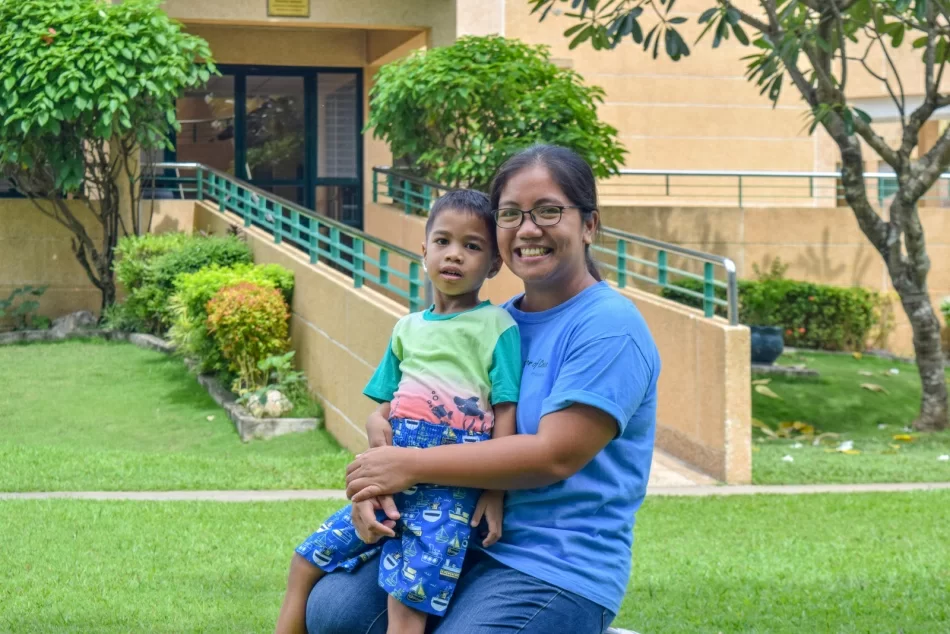
Tarzan!
Morning meeting is a great day opener at CCHS!
Each day begins with a group gathering for ten to fifteen minutes. Children say greetings to each other, do some movements, share ideas, and listen to the teacher's message for the day. It is something that children look forward to!
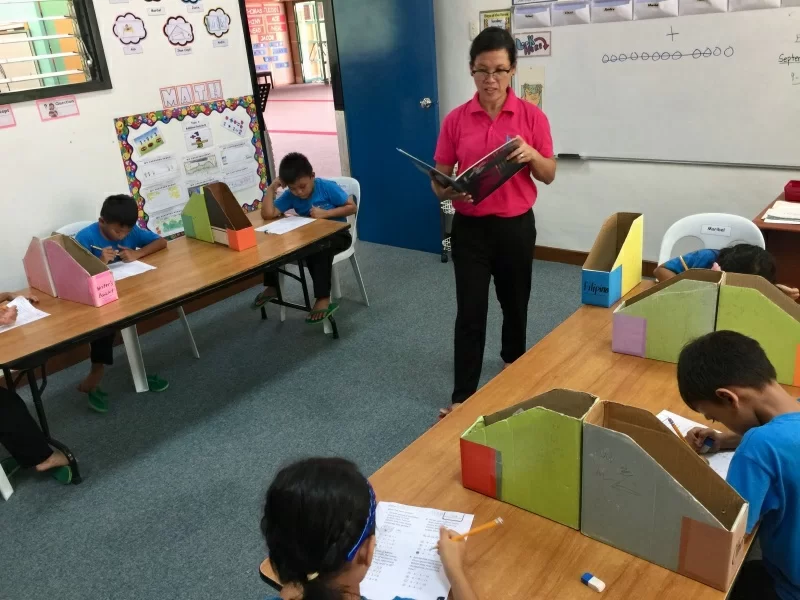 One morning meeting, I raised this question to my class for sharing time, "If you were to ride in a rocket and bring someone with you, who would it be?" I gave my students one minute to think of an answer. Everyone was so quiet and serious except for one boy who kept smiling the whole time.
One morning meeting, I raised this question to my class for sharing time, "If you were to ride in a rocket and bring someone with you, who would it be?" I gave my students one minute to think of an answer. Everyone was so quiet and serious except for one boy who kept smiling the whole time.
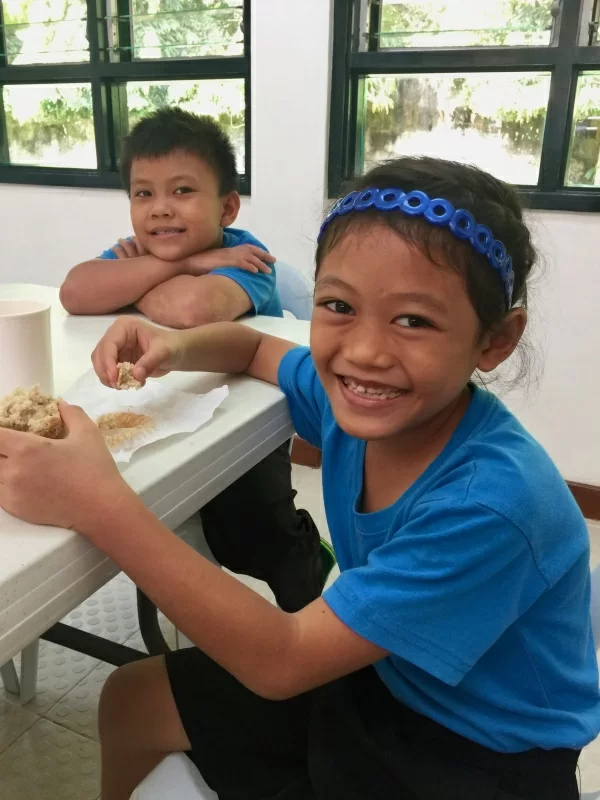 After the time given, each of my student happily shared their answers. Most of them wanted to bring a friend. One thought of bringing his brother. When I asked the student who was smiling, he didn't answer right away. After a few seconds he said, "Tarzan!" Everyone in class laughed out loud (which was the reaction he was hoping for). Before our morning meeting ended I asked him his reason for wanting Tarzan with him. He didn't give me an answer, just a sweet smile on his face.
After the time given, each of my student happily shared their answers. Most of them wanted to bring a friend. One thought of bringing his brother. When I asked the student who was smiling, he didn't answer right away. After a few seconds he said, "Tarzan!" Everyone in class laughed out loud (which was the reaction he was hoping for). Before our morning meeting ended I asked him his reason for wanting Tarzan with him. He didn't give me an answer, just a sweet smile on his face.
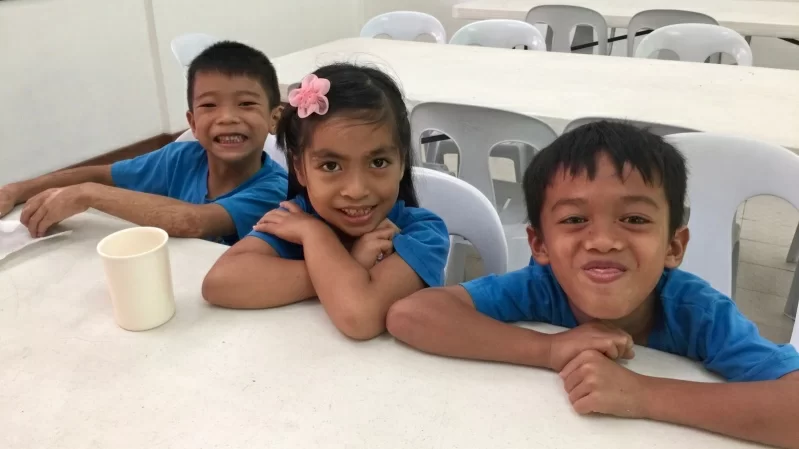
A Beautiful Day With a Bat!
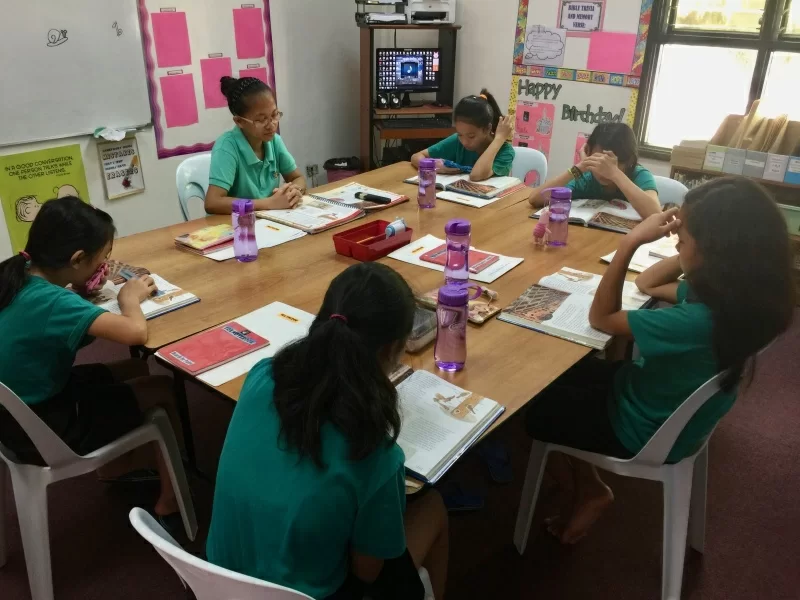
It is fun being at school, learning new things together with the kids and trying to widen our understanding of the world. Our class has been focusing on the theme "City Wildlife". My students enjoy noticing the "wildlife" around CSC- the goats, cows, birds, geckos, insects, and occasional snakes.
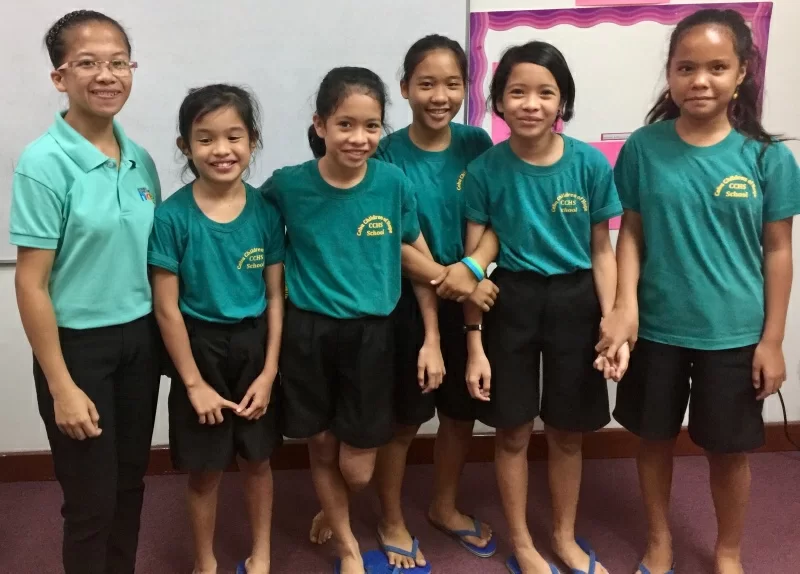
One beautiful cold day after flag ceremony, my students were getting ready for our Morning Meeting. Part of our Morning Meeting is "Inviting God" so we sang a praise song entitled, "It's a Beautiful Day". While singing, one student noticed something moving inside an empty magazine box. Suddenly it flew out of the box and left our classroom. It was gone before we could even react of what we saw. We just watched it fly away. Who would have thought that there was a bat (wildlife) inside our very own classroom? Maybe there's wildlife also in your community where you least expect it. Watch out!
A day to remember
September 17 was quite a day at CSC. It was the day of our annual Sportsfest held on the CSC playground, involving all our Children of Hope School kids and many of the Aunties and Uncles. There were lots of different events from three legged race to an egg toss, hot air ping pong and lots more. Also on he 1 7th we had visitors from Australia. A family who had adopted a little girl from CSC several years ago were back to visit and see the place where she had lived. She and her brother joined the sportsfest; the more the merrier! We also had a visit from a team of volunteers with Converge, USA who represent churches in the Colorado and Wyoming areas, who wanted an introduction to our ministry. So they came for lunch and a tour. And we also had Joan Gleddie and Eleanore Karsdorf from Canada, who represent our Canadian board, who were here for a special visit. Between the kids, the worker and our visitors we served around 210 meals. And we had a great day. A little wild, perhaps, but lots of fun for everyone.
CSC playground, involving all our Children of Hope School kids and many of the Aunties and Uncles. There were lots of different events from three legged race to an egg toss, hot air ping pong and lots more. Also on he 1 7th we had visitors from Australia. A family who had adopted a little girl from CSC several years ago were back to visit and see the place where she had lived. She and her brother joined the sportsfest; the more the merrier! We also had a visit from a team of volunteers with Converge, USA who represent churches in the Colorado and Wyoming areas, who wanted an introduction to our ministry. So they came for lunch and a tour. And we also had Joan Gleddie and Eleanore Karsdorf from Canada, who represent our Canadian board, who were here for a special visit. Between the kids, the worker and our visitors we served around 210 meals. And we had a great day. A little wild, perhaps, but lots of fun for everyone.
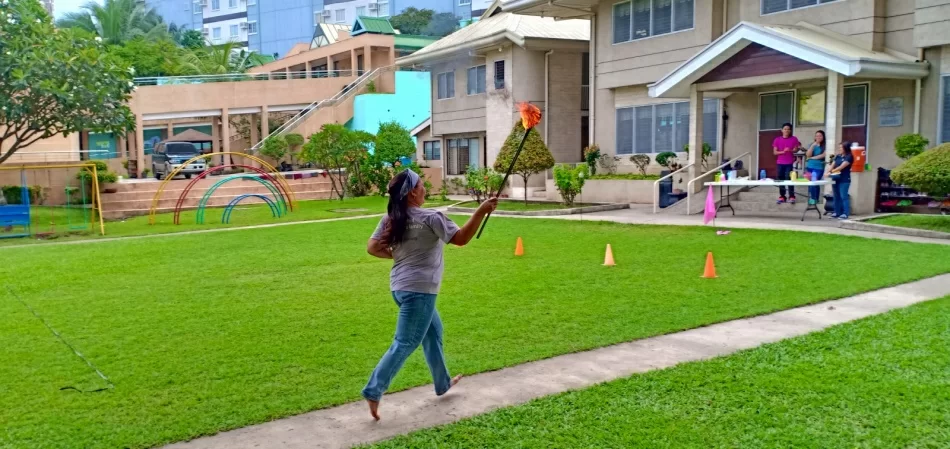
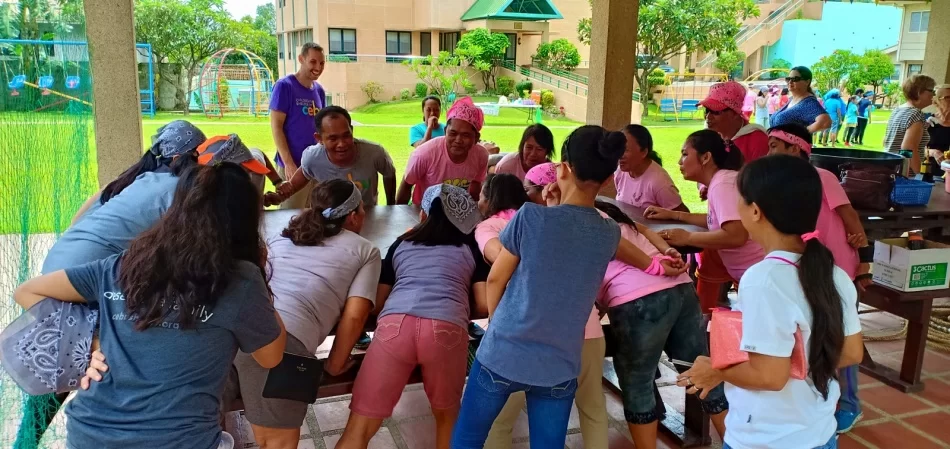
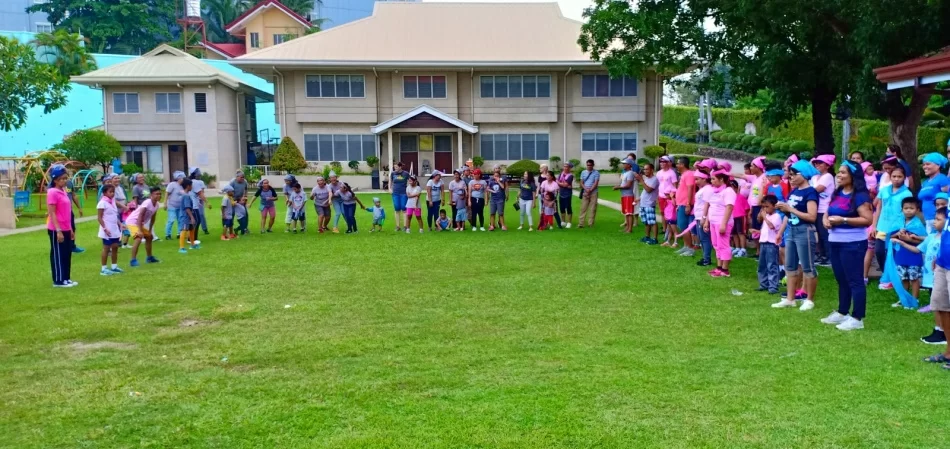
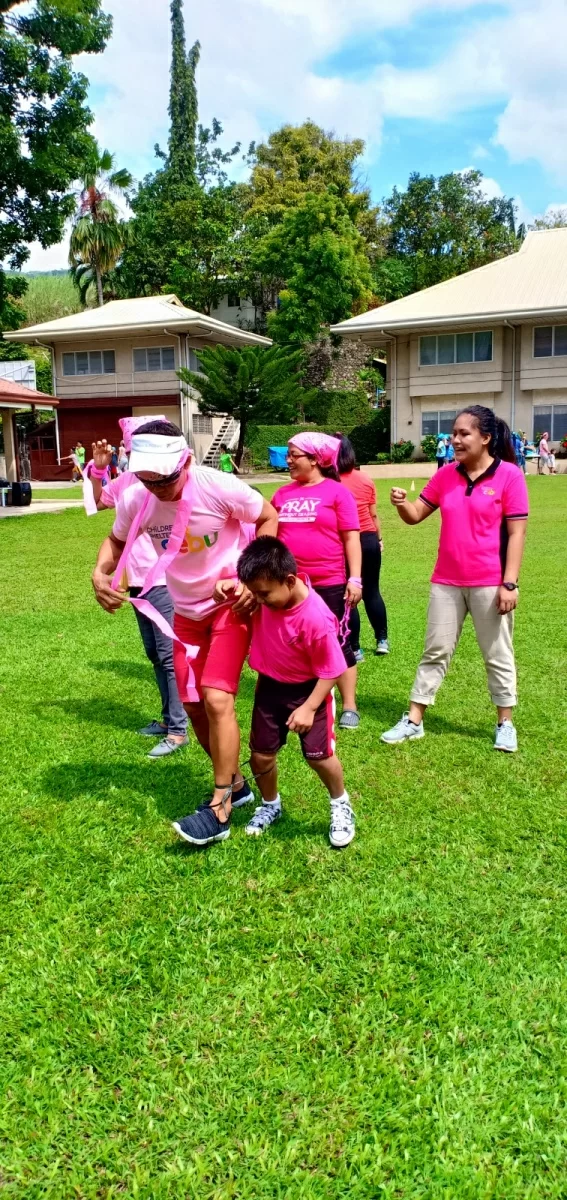
Buwan ng Wika
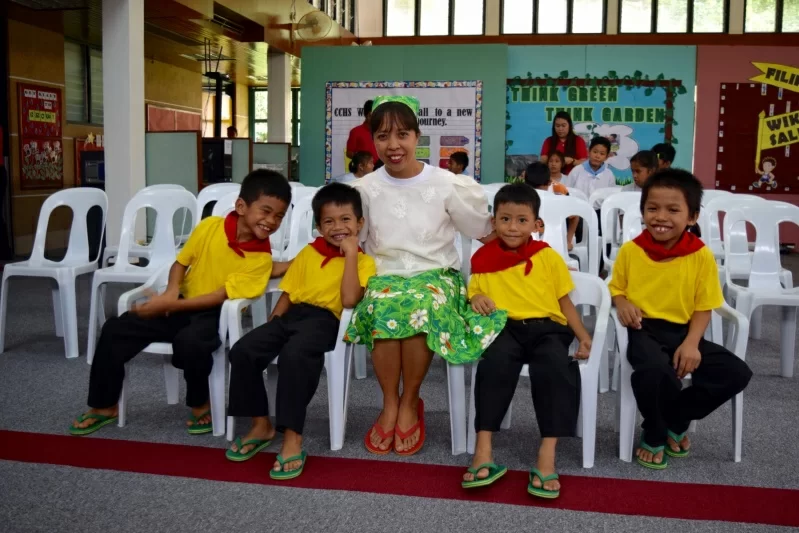
The Philippines has an interesting history. In the 1500s it was conquered by Spain and remained under its authority for nearly 300 years. Spain's rule continued until the US fought the Spanish for control of the Philippines in the 1890s. Once the Philippines was under American rule the Filipinos rose up to fight for freedom against America. America didn't give up possession of the Philippines until the 1940s. Despite only being recognized as an independent country for the last 70 years, the Philippines has a rich culture and deep pride.
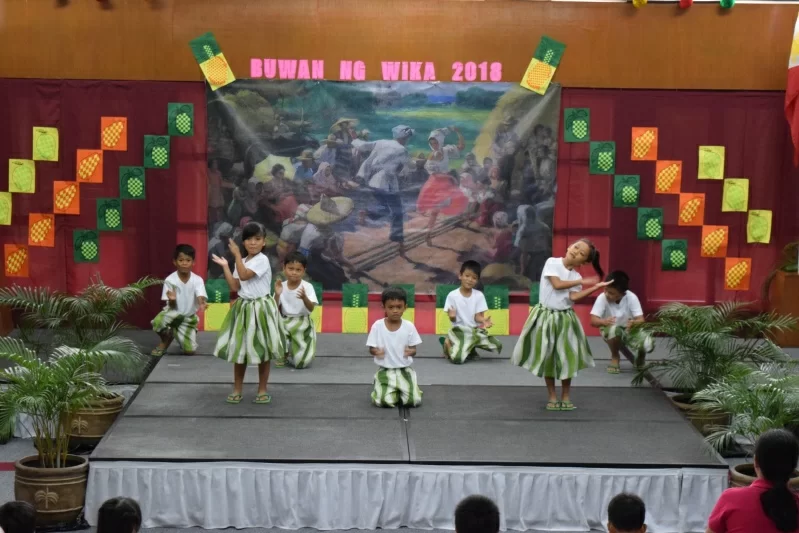
At Cebu Children of Hope School (CCHS) we celebrated our Filipino pride recently by having a half day festival called Buwan ng Wika. The afternoon started with the kids getting into four groups and rotating through different "game stations". At each station the kids played traditional Filipino games. They had a great time!
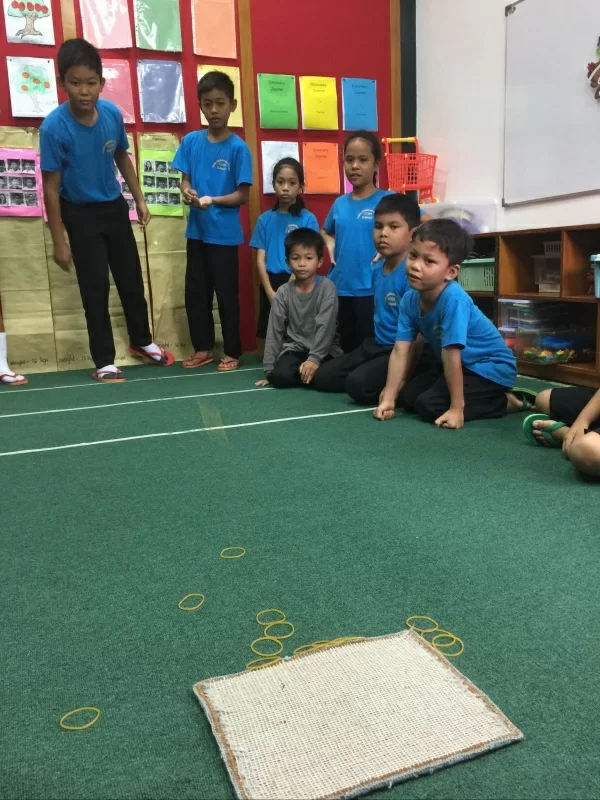
The highlight of the cultural festival was the program! Each of the classes performed a Filipino dance to the loud applause of the houseparents, aunties, uncles, several toddlers, as well as our high school students who had school off that day. The CCHS teachers even got in on the fun with a Filipino dance using scarves (they wisely positioned me in the back row). Four pairs of representatives highlighted the culture and fashion of the different regions of the Philippines. The teachers at CCHS did a wonderful job planning this fun event!
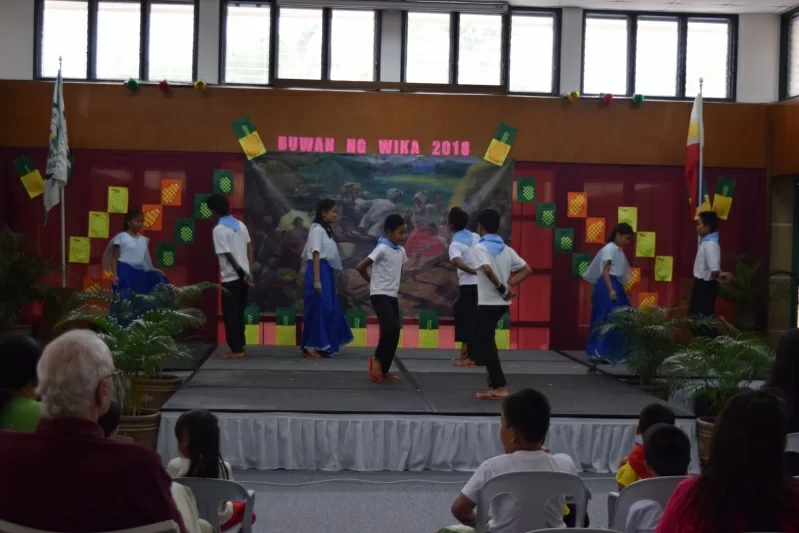
We love to celebrate kids at CCHS and the culture we are a part of! Thank you for helping support all of these memorable moments for the children at CSC. Because of you they can be kids again, laughing and playing just like any other child.
